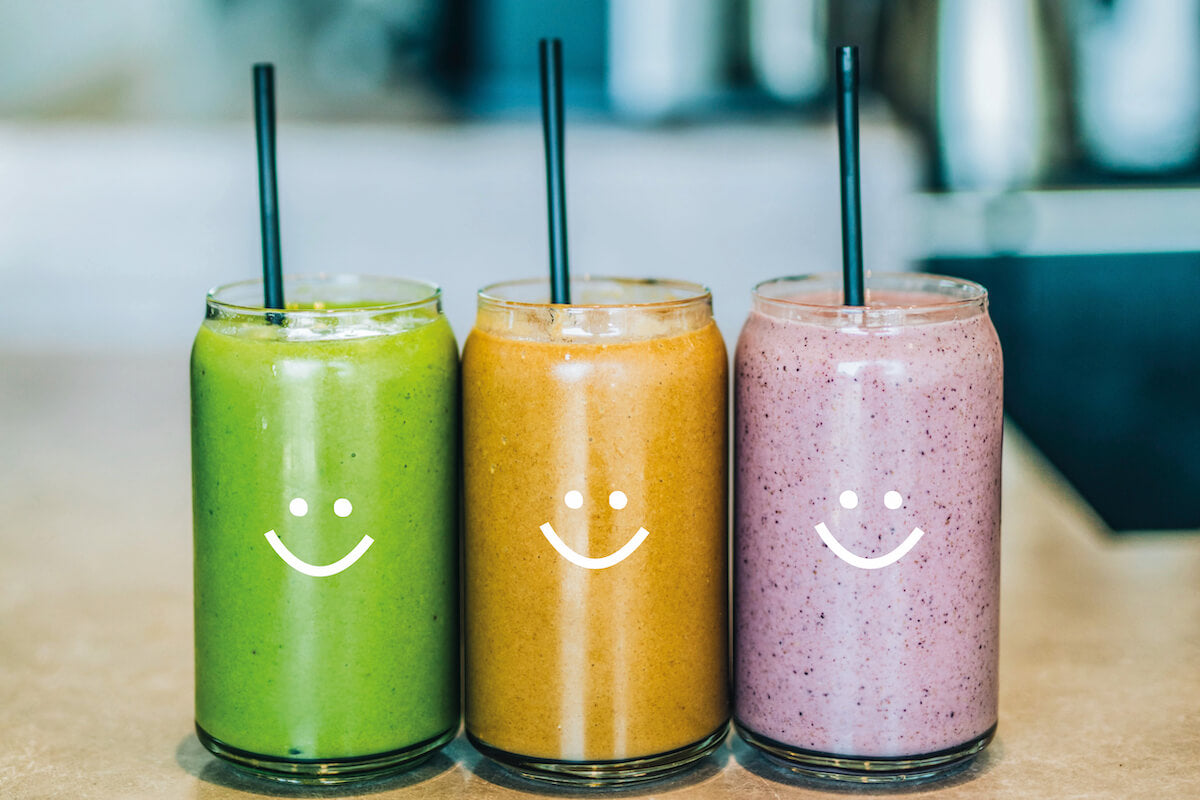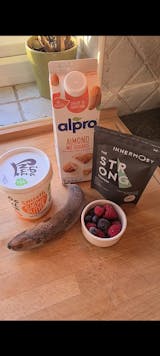Smoothies are an ideal food. They’re quick and easy to make, fully customisable to your taste, packed with nutrients and vitamins and best of all, are hugely good for you (assuming you make them right, that is).
While smoothies are traditionally a breakfast food, they’re good at any time of day. Portable and easy to eat, you can pack your healthy smoothie recipes with fruits and vegetables and ingredients such as nuts and seeds. Plus the all-important ingredients of Innermost protein powder, to give you a protein boost to power you through your workouts, refuel your body post-exercise and give you the strength to tackle your day head on.
Are smoothies healthy? Well, that depends on the drink. The ones below certainly are, but smoothies, especially the ones you buy, can be packed with sugar, non-beneficial ingredients and even things like ice cream. After all, there’s a difference between a protein smoothie and a milkshake, even if not everyone knows that.
We’ve assembled our favourite protein smoothie recipes for when you’re looking for inspiration about mixing up how you eat your protein powder, want to try some new tasty fruit combinations or simply want to try something different.
Making these healthy breakfast smoothies couldn’t be easier - simply add all of the ingredients to a blender and blitz until smooth and creamy. You might want to add a little more or less liquid depending on whether you like your protein smoothies thick and spoonable, or thinner and better for sipping from an Innermost bottle.
Another great tip, especially when it’s hot outside, is to add a handful of ice cubes to the blender and make a smoothie with the texture of soft-serve ice cream. Serve in a bowl with a spoon, and you’ll smile as you eat it.

Very berry smoothie
Berries are packed with antioxidants, making them both delicious and good for you. For this recipe, it’s convenient to keep a bag of your favourite mixed berries in the freezer so you can make this knockout protein smoothie whenever the craving hits. We love blueberries and raspberries, but let your tastebuds guide you.
- A handful of ice cubes
- 4 tbsp water or plant milk
- 3 big handfuls frozen mixed berries
- 1 big handful spinach
- 2 tbsp plain yogurt
-
2 scoops strawberry protein powder
- 1 tbsp almonds or walnuts
- 1 tbsp flaxseed
Chocolate-cherry delight
If you’re a fan of chocolate-covered cherries (and who isn’t?), this smoothie is for you. Cherries are rich in fibre, vitamin C, K and A as well as potassium, magnesium and antioxidants galore. And the chocolate element? That’s what makes this recipe so delicious.
- A handful of ice cubes
- 4 tbsp milk or plant milk
- 2 scoops of chocolate protein powder
- 2 big handfuls of cherries, fresh or frozen (don’t forget to remove the pits first)
- 2 big handfuls of spinach
- 1banana
- 1 tbsp cacao nibs
Sweet as apple pie
Just like that pie your grandma made you, except packed with protein, vitamins and minerals instead of butter and sugar. Don’t skip the cinnamon for this one - it’s essential.
- A handful of ice cubes
- 4 tbsp plant milk
-
2 scoops of vanilla protein powder
- 1 apple, core removed and cut into chunks (leave the skin on for extra nutrients)
- 1 big handful spinach
- 2 tbsp almonds or walnuts
- 2 tbsp oats
- 1 tsp cinnamon, plus extra to sprinkle on top
Piña colada protein smoothie
You might not be able to sip a piña colada on the beach on a tuesday morning after spin class, but you can easily whip up this tropical protein smoothie recipe. Try to resist the urge to add a splash of rum (or don’t - and check out our hangover cures for the morning after).
- A handful of ice cubes
- 4 tbsp plant milk (coconut works well here)
-
2 scoops of vanilla protein powder
- Half a banana
- 2 big handfuls chopped pineapple, fresh or frozen
- 1 big handful spinach
- 1 tbsp flaxseed
- 4 tbsp coconut yogurt
Mint choc-chip breakfast smoothie
Gelato shop closed for the night? Blend up this minty, chocolatey delight at home instead, and you’ll feel more virtuous and look better the next morning. This healthy smoothie recipe will give you the mint choc-chip fix you need without the calories of ice cream.
- A handful of ice cubes
- 4 tbsp plant milk
-
2 scoops of chocolate protein powder
- Half a banana
- 1 tbsp almonds or walnuts
- 1 tbsp cacao nibs
- 1 tbsp unsweetened cocoa powder
- Small handful of mint leaves (add more if you want it super minty!)
Green goddess smoothie
Avocado isn’t just for smashing onto toast. The rich, creamy texture of avocado is perfect for whizzing into a protein smoothie recipe. The healthy fats will keep you full for longer and the green colour will let everyone know how healthy you are.
- A handful of ice cubes
- 4 tbsp water
-
2 scoops vanilla protein powder
- 2 big handfuls of spinach
- 2 big handfuls of kale
- Half an avocado
- 1 big handful of grapes
- A squeeze of lemon























